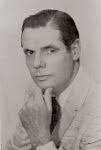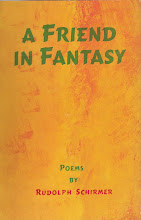 Los Angeles Music Center, Dorothy Chandler Pavillion.
Los Angeles Music Center, Dorothy Chandler Pavillion.Today, in 2009, Los Angeles is a world-class city. For almost 100 years, it has been the capital of the film industry (at least in the Western world). As of the millenium, L.A. is at the forefront of new media, creating novel ways of creating and disseminating art, music, video and live performance.
But there was a time when the rest of the country considered Angelenos to be second-class cultural citizens. Transplants from New York kept missing the idea of Broadway, where major theaters clustered around the fabled street. They pined after Carnegie Hall, Lincoln Center and the Metropolitan Opera. To be sure, we had the Hollywood Bowl, and the Shrine Auditorium and UCLA's Royce Hall, but the far flung nature of our performance venues, nestled, as they were in a series of suburbs, contributed to the prevailing notion that Los Angeles had no center, and therefore, no concrete evidence of a centralized arts scene.
It wasn't merely an issue of East vs. West. San Franciscans had long lorded over us Angels to the south, rubbing the excellence of their beloved opera in our noses. Pasadena, our genteel neighbor, reeked of refinement and culture and had several notable venues in which to enjoy it, such as the Pasadena Civic Auditorium and the Ambassador. No wonder, as Pasadena had been populated by transplants from the Midwest and the East. We, her slightly flashy, slightly trashy cousins, were forced into seedy second place. But not for long.
Enter Dorothy Buffum Chandler, wife of L.A. Times magnate Norman Chandler, whose passion and determination to create a "West Coast" center for the performing arts downtown was not only welcome, but legendary in its largesse. However, she wasn't the only one who dreamed of building a monument to the performing arts.
Rudolph, an adopted Angeleno, envisioned that very thing, elaborating his novel concept in a memorandum to the Board of Directors. Interestingly enough, this was most likely written in the mid-fifties, when he was sent to Los Angeles to oversee Schirmer retail operations in the greater metropolitan area. Surely, while he there, he would have inserted himself into the classical music scene, and was no doubt privy to discussions on the future of the arts in L.A. Who knows, perhaps at a dinner party one evening, Buff sat next to the handsome heir to the publishing firm and listened to his vision for our fair city. I would love to imagine that very thing.
"...In the time I have been in Los Angeles I have perforce given considerable thought to our branch stores in this area. I have been concerned not only with improvements that might be made within the framework of the present operations, but also, and more importantly, with the various ways by which the nature and scope of this operation might be transformed so as to yield a firm financial return while at the same time promoting our name and product together with the general cause of music in the West.
Just as Los Angeles itself has been likened to a group of towns in search of a city, so might the musical world within it be compared to a band of performers in search of a conductor - or, to elaborate the comparison, to an orchestra of soloists locked in separate and non-communicating chambers. Only in a few instances has this local "autonomia" been overcome and a landmark provided which captured the allegiance of the joint community and the recognition of the outside world.
I refer of course to the Hollywood Bowl, Disneyland and the Famers Market. If nothing else, these institutions have proven that it is possible in Los Angeles to create focal centers. We may therefore explore with some confidence the possible creation of a general music center which could be subsequently - or simultaneously - allied with a cultural development on the order of Lincold Center in New York. If we are thinking in terms of ultimate solutions and not of temporary remedies this is the direction our thinking will have to take.
...Construction of an all-inclusive music center, either one large building or a complex of small buildings around a court, housing salesrooms for the leading companies in all music fields and an all-purpose auditorium, to be known tentatively as "SCHIRMER'S WEST COAST MUSIC CENTER." A leasing corporation would be formed. Schirmer's would have the master lease and lease out the various concessions. At the end of ten years, the building would belong to Schirmer's, with a small percentage of the stock reserved for the building company....
...To the question, should we withdraw from Los Angeles altogether, my answer is emphatically no. No one will contest that this is rapidly becoming the second largest American city and within 10 ears it is bound to be the second in importance as well. The population is currently augmenting at the rate of 20,000 a month. I happen to know that concrete forces are already at work to provide Los Angeles with musical facilities commensurate with its size. The Universities, the Hollywood Bowl Association, the Philharmonic and the Los Angeles Conservatory (whose board I have been asked to join) are responding to the inarticulate but quite perceptible pressures of the whole Southern California populace."
*Footnote: It will be noted that Los Angeles in the 40's and 50's actually did boast world class musicians, many of whom fled Europe during the war and contributed classic scores to films. Indeed, Schoenberg, Heifitz and many others lent their talents to our educational institutions, no doubt influencing hundreds of young composers, vocalists and instrumentalists.
As a matter of fact, Los Angeles, beginning with the latter part of the 19th century, had an incredible system of music education in the schools, where every classroom was equipped with a record player and a supply of musical classics. Indeed, there were music schools in every neighborhood, and our radio stations, unlike the narrow theme-casting of today, played an ecclectic mix of popular standards and classical music, ensuring that Angelenos from all walks of life were incredibly well-versed in the classical music repertoire.
Today, arts programs have been virtually eliminated from the public school system and musical training is available only to those with the economic means to afford private lessons. We really are in danger of becoming culturally - and especially musically - illiterate, not to mention economically marginalized. It is both astonishing and amazing that we as a city have allowed this misfortune to occur. And how insulting to the very real, and very rich musical heritage that was present for so long in our fair city.
Perhaps it is not too late to reclaim our legacy and honor those many gifted musical artists and teachers that have at one time lived, worked and taught in Los Angeles. Perhaps Rudolph's vision of a real "music center", a vibrant city that teaches, listens to and creates beautiful music - is yet to be built. Perhaps it is up to those of us who value such things, to see to it that it comes to pass.
I'm sure Buff would agree!
For more information I highly recommend:














